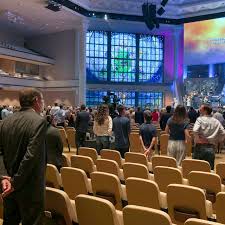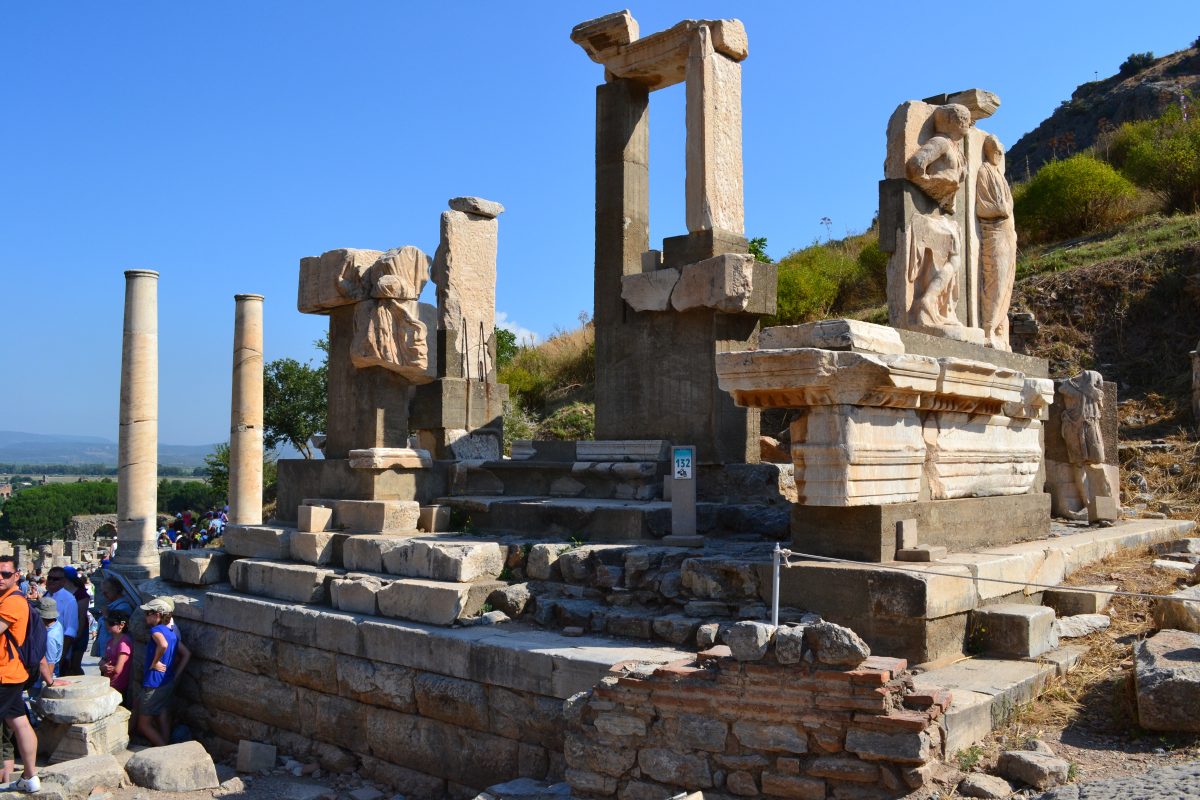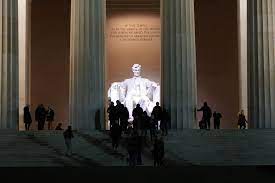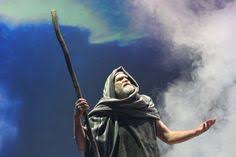Background Passages: Matthew 16:13-19; I Peter 2:4-8; Hebrews 11:24-25
Jesus slipped to the grass from the flat rock upon which he sat as he spent the last hour in prayer. The canopy of trees under which he now reclined with his back against the rock sheltered him from the late afternoon sun. Jesus glanced at his disciples gathered in a loose cluster about 40 feet further down the hill. As they finished their prayers one by one, they talked quietly among themselves, breaking out a small loaf of bread and passing it around, satisfying their hunger.
Jesus looked from his disciples down into the town of Caesarea Philippi, a bustling city 30 miles north of the region of Galilee. He watched the frenetic pace of the people as they finished the work of the day and headed home. He lifted his eyes toward the sheer cliff on the north side of the city. It rose 150 feet above the lush, green valley below. He knew the stream gushing from the massive grotto on the western edge of the cliff were the headwaters of the Jordan River as it flowed south to the Sea of Galilee.
The cavern was said to be the birthplace of Pan, the Greek god of nature. Worshippers still brought their offerings of fruit and grain, laying them at the altar.
His vision shifted to the gleaming temple of white marble which Philip, the region’s ruler, dedicated to Caesar Augustus, the Roman emperor whom the people considered a god. Before these temples and altars were built, Jesus knew his history well enough to know the whole area stood as a center dedicated to the worship of Baal, the ancient Canaanite god.
It was a deeply reflective moment. Jesus contemplated the scene spread across the valley below. Considered all he had done during his ministry. Felt his gut tighten when he thought about the cross to come. Had anything he said and done made a difference? Before he began his final journey to the cross Jesus needed to know. Did anyone really know who he was?
He turned to his disciples quietly talking and laughing in the ease of friendships forged by common experiences. His words cut through the comfortable conversation. “Who do the crowds say I am?” They turned toward Jesus in a rustle of robes and shuffling feet. They were used to his probing. Knew an answer was required. “John the Baptist,” one blurted. “One of the old prophets brought back to life,” announced another. “Elijah,” another proclaimed.
Jesus glanced again at the city below, lost in thought for a moment. Then, he turned back to his disciples. “But what about you? Who do you say I am?”
Jesus held his breath, looking into the eyes of each of his closest friends. Their answers would make all the difference. Would he see blank stares of incomprehension? Would he catch so much as a spark of understanding that meant he had at least lit a torch in their hearts? He waited. Felt his heart thump anxiously in his chest.
How his soul must have soared when Peter stood among them, looked at his friends, then to Jesus, knowing that he answered for all of them. “You are the Messiah. The Anointed One of God.”
I wrote the above narrative almost three years ago. It is a favorite episode of mine from the life of Jesus. At the time I wrote it, I used it to talk about what that kind of faith commitment means. I was reminded of that devotional last week for a different reason when I read the following headline that popped up on my news feed.
“U.S. Membership Falls Below Majority for First Time”
A stunning statement, but not surprising. We’ve all seen the evidence.
The Gallup Poll provides interesting fodder for sociologists and students of American culture. Of the many things it has surveyed over the past 80 years, Gallup annually measures religious affiliations and church membership.
Gallup reported this year that Americans’ memberships in houses of worship dropped below 50 percent for the first time since the data was collected. In 2020, 47 percent of Americans said they belonged to a church, synagogue or mosque, a drop of 23 percent over the last 20 years.
At the same time, Gallup also showed that the United States remains “religious.” More than 70 percent of all Americans affiliate with some type of faith tradition.
So, the question begs to be answered. If 70 percent of us claim to be religious, why are less than half of us a member of a local congregation? Why is it that almost every church has a membership role that far exceeds its regular attendance? What does it mean for the church in the days to come?
I think the answers to those questions go back to that hillside in Caesarea Phillipi. After Peter made that astounding declaration of faith and Jesus breathed his sigh of relief, he turned to Peter with an amazing statement of his own.
“Blessed are you, Simon, son of Jonah, for this was not revealed to you by man, but by my Father in heaven. And I tell you that you are Peter, and on this rock I will build my church, and the gates of Hades will not overcome it.”
Jesus declared to Peter that because of his profession of faith he would be the rock upon which his church would be built. Baptist pastor Michael Stark said, “Our Lord was saying to Peter that he was the beginning of the new Israel, the new people of the Lord, the new fellowship of those believing on His Name. Peter was the first to both understand who Jesus was and to declare openly that truth.”
Peter is spoken of as the rock of the church in the sense that he was the first person to fully comprehend who Jesus was. While the Catholic church elevates Peter to a high status within the church, Peter himself never felt that way. He spoke often of being a “fellow worker” and a “bond slave.”
Don’t take that passage out of context. The rest of scripture declares that it is not just Peter who must be the rock of his church, but all of us. In his one of his own letters to the early church Peter wrote,
“As you come to him, a living stone rejected by men but in the sight of God chosen and precious, you yourselves like living stones are being built up as a spiritual house, to be a holy priesthood, to offer spiritual sacrifices acceptable to God through Jesus Christ.” (I Peter 2:4-8)
Do you hear what he said?
“You, yourselves, like living stones are being built up as a spiritual house…”
You and I, as believers in Christ, are the building blocks of God’s church.
Practically, we know that every building needs a solid foundation and quality materials. God laid a foundation of reconciliation to a sinful world. Jesus’ life and ministry, his work on the cross and his resurrection served as the faith cornerstone of the church.
In light of the Gallup report, how effective can that church be if we remove our stone from its walls?
I don’t know why so many are choosing to leave the organized church. Perhaps, the church has grown too tolerant in some cases; too intolerant in others; too self-righteous to some; and far too political in its extreme.
What I do know is that the cause of Christ is damaged every time one of us says, “I have had enough.”
We are a sinful and imperfect people…both inside and outside the church. When I use that as my measure, viewing the church only as a body of hypocrites, it’s easy to walk away.
I see those in the church as very much like me. Filled with fault. Trying their best to live according to God’s purpose. That’s when I find I most need the church. That’s when I find the church most needs me.
The headline made me think. Why do I stay involved when others choose a different path?
The Bible calls us to corporate worship and good work. We congregate so we can love and be loved. We congregate in order to serve others as Jesus served. In a world that easily rejects everything it means to live for Christ, I need the encouragement of fellow believers to keep from giving in or giving up. I find that encouragement in the gathering of the church.
The writer of Hebrews said it plainly:
“Let us consider how we may spur one another on toward love and good deeds. Let us not give up meeting together, as some are in the habit of doing, but let us encourage one another. (Hebrews 11:24-25)
To be sure, there are many believers of genuine faith who no longer belong to a specific congregation for a variety of reasons. They have given up their habit of meeting together. I don’t question that their faith is real and meaningful. However, I know what I receive by being active and involved in a local congregation. Therefore, I know what they are missing.
As a part of the church, I am loved. With all my faults and mistakes, as a part of the church I am accepted. As a part of the church, I have a place I can serve using the gifts God has given me. As a part of the church, I am taught the things of God. As a part of the church, I know I am where God expects me to be.
We’ve all been hurt by someone in the church at some point in our lives. We’ve all been disappointed and let down. By the same token, we have hurt and disappointed our share of people, I’m sure. Regardless, of how deeply that hurt runs, we cannot abandon the place where God calls us to serve wherever that may be.
You see, my church became the church to me because I became a part of it and, in doing so, it became a part of me…if that makes sense.
To all those believers who have walked away from the for whatever reason, the God needs you now in his church more than ever. Find a place where you can be encouraged. Find a place where you can love and let them love you. Find a place where you can serve God with all the gifts he gave you.
Let us not give up meeting together. Let us keep investing ourselves in his work, participating in his ministry. Now is not the time to walk away. Become a part of a church somewhere that needs your presence and in doing so, let it become a part of you.









